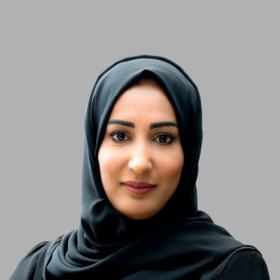As the IUCN World Conservation Congress 2025 started this week in Abu Dhabi — marking the first time the event is held in the Middle East — ESG Mena sat down with HE Dr. Shaikha Salem Al Dhaheri, Secretary-General of EAD and IUCN Councillor. In this exclusive interview, Dr. Al Dhaheri shares insights on the significance of hosting the Congress, the UAE’s leadership in global environmental diplomacy, and the nation’s efforts to protect biodiversity and marine ecosystems.
How significant is it for the UAE to host the IUCN Congress for the first time in the region?
Of course, we are very honored and privileged to host the IUCN World Conservation Congress 2025 here in Abu Dhabi, which happens for the first time in the GCC. Again, it happens at a time when we are all aware that more than one million species are facing extinction, and the loss of biodiversity is occurring at a rate more than one thousand times faster than background rates. The hosting of the Congress for the UAE is very important because we believe that the UAE sits at the heart of global conservation — absolutely sits at the heart of global conservation — because we have a long track record of more than fifty years of environmental leadership that is rooted in the vision of the Late Sheikh Zayed Bin Sultan, May God bless his soul.
What role can the UAE play in global conservation efforts?
We are really convinced that the UAE can play a very strong role in negotiating and mediating. It will play an extraordinary role in bridging between the different conservation efforts locally with global impact through three things: accelerating transformational conservation actions, amplifying global partnerships between governments and others, and inspiring the next generations to take action. This is again to reaffirm that today we must be united to conserve and protect the environment, to take bold and collective actions here and now.
How is the UAE connecting its biodiversity agenda with the COP30 process?
Basically, it’s all connected. When we speak about climate change, when we speak about biodiversity, when we speak about endangered species, they are all connected. The environmental ecosystems are interlinked, and therefore, all these Troikas need to really focus on achieving one goal.
How does the IUCN platform help align biodiversity with climate goals?
Yes, the UAE’s hosting of the IUCN Congress creates an opportunity to align both agendas — biodiversity and climate — under one integrated framework of global action. It provides a platform where governments, organizations, and communities can come together to reinforce nature-based solutions and ensure that conservation becomes central to the climate conversation.
Will there be major announcements or initiatives during the Congress?
This is a really great question. What I can tell you is that there will be announcements not only from the UAE but also from different organizations and governments. As far as we know, there will be an announcement on the Global Red List, which will definitely push organizations to take action. There will be a debate over two hundred motions that will set policies and actions going forward. From the Environment Agency, please follow us — we are very close to a whole team, and we have a couple of announcements, hopefully that will be shared soon.
How might these policies impact conservation in the region?
These global motions will help governments and local authorities translate global commitments into national action plans. They will guide conservation priorities, direct funding, and inspire stronger community and private-sector engagement across the region.
The UAE has also been active in marine conservation. What are the key priorities in this area?
I’m not sure about announcements, but what I can tell you is that the oceans are very dear to us as a nation, given that we are a coastal nation, absolutely. Therefore, we have put a lot of effort and investment into rehabilitating and conserving the oceans within the UAE, and specifically within Abu Dhabi. As I have shared with you, there are a lot of impact initiatives — we have moved from ambition to impact results when it comes to fisheries recovery and coral reef rehabilitation. We have announced the largest initiative in the world to propagate more than four million fragments, which will help in tackling climate change and bleaching issues in marine ecosystems. We have invested, as the Environment Agency, in a state-of-the-art marine vessel called J1. Her role is to study climate change impacts within the Arabian Gulf and address solutions through Edna and through technologies. The mangrove initiative is another example. We have been spearheading not only the traditional way of restoring mangrove forests but also adopting technologies that can accelerate restoration and rehabilitation — technologies that are based on AI.
How important is technology in driving the next phase of conservation?
Technology is a key enabler. The integration of AI and advanced data systems allows us to monitor ecosystems in real time, predict risks, and restore habitats more efficiently. Through innovation, we can transform conservation from a reactive to a proactive science, ensuring that environmental protection keeps pace with climate and urbanization challenges.




